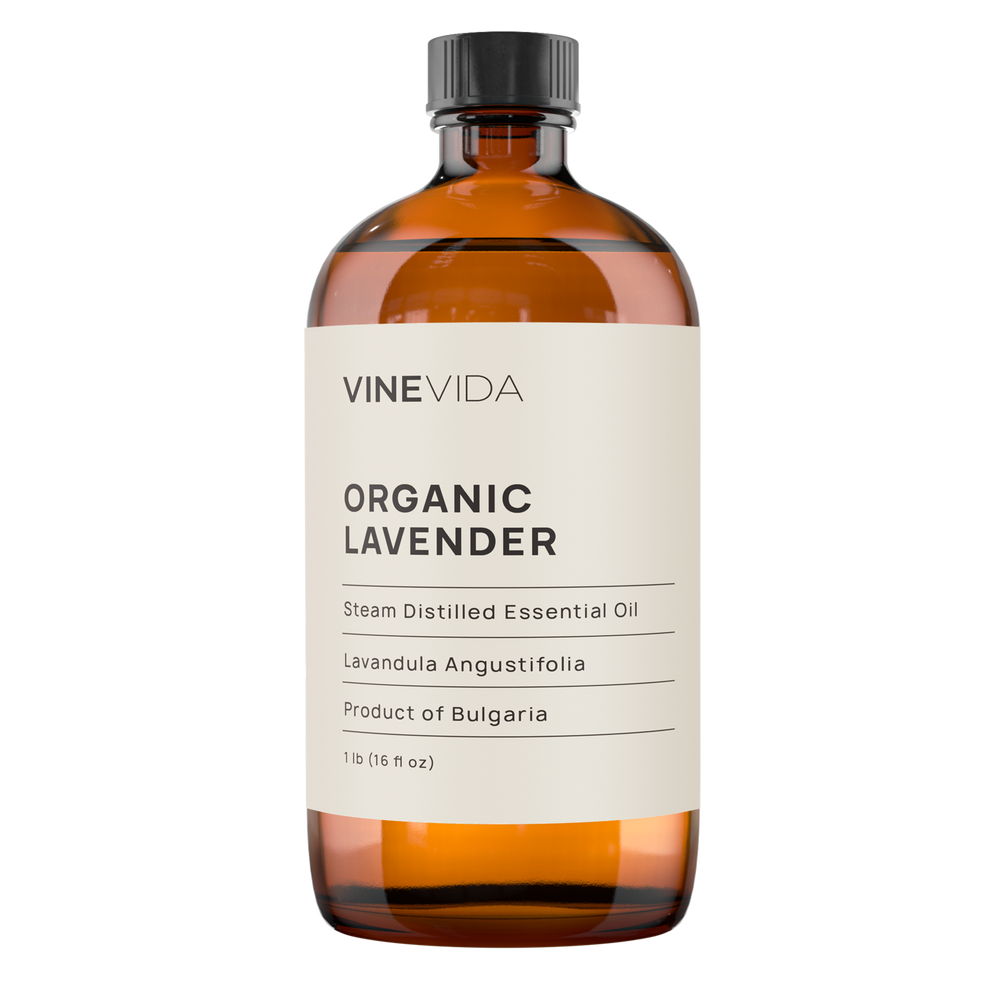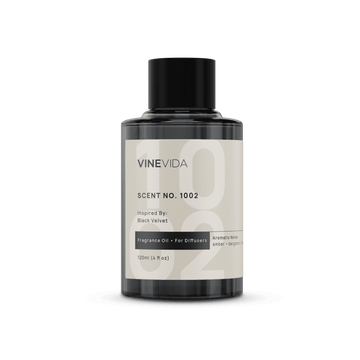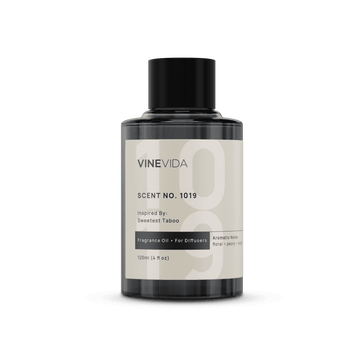March 17th is World Sleep Day, designed to make a shift around health priorities. Just because sleep is an automatic function does not mean we should take it for granted. Sleep is vital to good health and should be prioritized in the same way as we think about diet and exercise, for example. This is one area where essential oils excel. Today, let's consider why lavender essential oil for sleep is gaining so much interest.
Before we get into the nuts and bolts of which essential oils for sleep to choose from, let's first get a handle on how much we each need and some of the reasons why we should focus more on sleep health.
How Much Sleep Do We Need?
Age determines how much sleep a person needs. Typically we need less sleep as we get older.
According to the Centres for Disease Control
- Newborns (0–3 months) need 14–17 hours
- Infants (4–12 months) require 12–16 hours
- Toddler (1–2 years): 11–14 hours
- Preschool (3–5 years): 10–13 hours
- School-age (6–12 years): 9–12 hours
- Teen (13–18 years): 8–10 hours
- Adult (18–60 years): 7-plus hours
- Adult (61–64 years): 7–9 hours
- Adult (65+ years): 7–8 hours
As well as how long and quality of sleep is important. Signs of poor sleep quality include:
- Waking up at night and still not feeling refreshed even though you've had plenty of sleep.
Both forms of acute and chronic insomnia are very common.
Roughly 1 in 3 adults worldwide suffer from insomnia symptoms, and about 10% of adults meet the criteria for insomnia disorder.
Chronic insomnia is usually a result of stress, life events, or habits that disrupt sleep. Treating the underlying cause can resolve insomnia, but sometimes it can last for years.
Common causes of chronic insomnia include:
- Stress
- Travel or work schedule
- Poor sleep habits
- Eating too much late in the evening
- Screen time
Also Read: What Is Lavender Oil Good For?
The Association Between Screen Time and Sleep
Screen time is a relatively new phenomenon, and we're only starting to understand how it affects our brains.
With the normalization of screens in bedrooms, according to a 2018 paper published by the NIMH, insomnia affects around 30% of toddlers, preschoolers, school-age children, and most adolescents. (Hale, 2018)
In a literature review of studies investigating the link between youth screen media use and sleep, 90% of the studies demonstrated an association between screen media use and delayed bedtime and decreased total sleep time.
Screen light affects the parts of our brain that tell us it's time to go to sleep.
Screens and Wakefulness
Two areas of the brain affect sleep and wakefulness timing.
The hypothalamus contains groups of nerve cells that act as control centers affecting sleep and arousal. This cluster of thousands of cells, called the suprachiasmatic nucleus (SCN), receives information about light exposure through the eyes and controls behavioral rhythms accordingly. It is designed biologically to keep us awake as long as it is processing light.
The other structure involved is the pineal gland. When the light dims in the evening, the pineal gland switches down and secretes the sleep hormone melatonin.
When you think of your dreams, you might notice you imagine them as slightly blue. This might be because blue light is the sleep cycle's most active part of the light spectrum. When the pineal gland perceives blue light, it suppresses melatonin production. This is why it becomes difficult for people to "switch off" and fall asleep.
Studies show that two or more hours of screen time in the evening can disrupt the melatonin surge needed to fall asleep.
Even doing delicate tasks on a computer can delay sleep because of this blue light, but texting, video games, or late-night TV can also be very stimulating.
This has the potential to become seriously bad news for the teenage lockdown generation. Studies show that 57% of teens who use technology in the bedroom suffer from sleep problems. More research shows that keeping a smartphone or TV in the bedroom will likely affect sleep poorly.
Further, excessive mobile phone use is linked to symptoms of depression and anxiety, both of which will interrupt sleep.
Ok, So what? Does it matter if we are a bit tired anyway?
Also Read: Is Lavender Oil Good For Hair?
The Importance of Sleep
I should preface this by saying, "as far as we know…" because we still understand little about sleep.
We all need it, but why remains to be seen?
We take it for granted when all is well, but when things start to go wrong…
Well, statistically, I'm sure you have been there at one point or another.
Work and study are harder because we need to concentrate. We get ratty, make poor decisions, and exercise irrational judgment.
Physical Effects of Sleep
Good sleep is associated with better emotional health, stronger immunity, cardiac health, reduced inflammation levels, and lower weight gain.
Sleep and Weight Gain
Somehow, there seems to be a link between short sleep patterns and obesity, although what remains unclear.
A 2018 study suggested that people who regularly slept less than seven hours a night are likely to have a higher body BMI and develop obesity than those who slept more. (Cooper, 2018)
It could be that we're less likely to head out on a run if we are shat. Still, researchers suggested sleep deprivation may also be associated with higher levels of a hunger hormone, ghrelin, inflammatory markers, and salt retention.
More research is needed better to understand the links between poor sleep and weight gain.
Evidence suggests that we take in fewer calories after a long sleep. A 2022 clinical trial demonstrated that when overweight adults increased their sleep by an average of 1.2 hours per night, they took in around 270 calories less than the control group. (Reynolds, 2022)
Now, it's important not just how long we sleep but also the quality of the sleep we get.
Also Read: Is Lavender Oil Good For Skin?
Understanding Sleep Architecture
There are four stages of sleep, although the body might go forward on, backward, and forward again. They are not necessarily linear; throughout the night, your body cycles through each stage four to six times.
We only dream in the Rapid Eye Movement Stage (REM). Dreams do not occur in NREM (Non-Rapid Eye Movement)
First Stage 1
During the lightest stage of NREM sleep, we transition from wakefulness to sleep.
When your brain waves slow in this first stage. Your heartbeat, breathing, and eye movements also slow. Muscles also relax, and (if you are like me) you might suddenly jolt and twitch. (If this is you, look out for my comments about magnesium later in the article.
You'll usually only spend about 5% of your total sleep time in this stage, w
Next, in the second stage, the heart rate slows more, and the muscles relax even more. Eye movements stop, and this is when you are most in danger of getting cold as the body temperature falls too.
If you were to be monitored on an EEG, it might pick up sleep spindles here. Sleep spindles and is believed to consolidate memories.
A person's brain-wave activity slows, but they experience brief bursts of electrical activity, known as sleep spindles. They are easy to see on a readout because they look like bursts of activity in otherwise quiet times and look like wool spindles, hence their name.
Each occurs every three to six seconds and lasts between 0.5 and three seconds.
Studies suggest sleep spindles help with memory consolidation, but again, what these spindles do needs to be clarified.
They may target the thalamus that processes sensory input, quietening it to make it less likely that the sleeper will wake up. However, there is also an increase in sleep spindles when someone has been studying during the day. Scientists suspect they will likely be involved in processing memories and committing the newly acquired information to long-term memory.
They may also be involved in motor abilities such as dances.
Studies show sleep spindle activity is much faster when someone has been learning some motor sequence pattern, like finger tapping. (Sleep Foundation)
About 45% of the sleep time in a night occurs in this second stage. The first cycle typically lasts around 25 minutes, then increases with each cycle.
Stage 2 NREM (Deepest sleep)
Body temperature drops, heart rate and breathing slow and the muscles relax. Eye movement stops and brain activity slows, but occasionally there are short bursts of activity called sleep spindles that we will talk about later.
Stage 3 is known as SWS or slow wave sleep.
Heart rate, breathing, and brain waves are at their lowest levels, and muscles are completely relaxed.
Now, the emphasis moves from the mind to the body, as it regrows tissues, repairs itself, builds bone and muscle, strengthens the immune system, and builds bone and muscle. This stage of sleep is vital if you are to wake up refreshed.
This stage is the hardest to awaken; it accounts for about 25% of your sleep. If you have bedwetters or sleepwalkers, this is their busy time. Night terrors happen at this stage too.
Stage 4 REM (Dreaming)
This stage usually begins about 90 minutes after you fall asleep, which is the realm of dreams and nightmares.
Brain activity is closer to wakefulness now, but the arm and leg muscles are paralyzed, presumably to stop us from acting dreams out.
The so-called Rapid Eye Movement happens as the eyes dart side to side. Now, heart rate and breathing increase too.
We spend around 25% of our total sleep time in REM sleep, and each cycle can last anything from 10 minutes to an hour.
It's thought that we need a balance of REM and non-REM sleep to consolidate memories fully.
So, I will read that you know caffeine before bed is a bad plan, and you understand the power of good sleep hygiene. Reduce screen time, have a comfortable bedroom temperature, and have a warm drink before bedtime. I'm a massive believer in the power of a bath, especially with Epsom salts and essential oils.
Also Read: What Mixes Well With Lavender Essential Oil?
Lavender
The lavender essential oil contains anxiety-relieving chemicals such as linalool and linalyl acetate, which are sedatives and relieve anxiety symptoms. These components interact with the brain and nervous system to reduce agitation, restlessness, and aggression.
Linalool is a really interesting chemical that scientists love exploring. It appears in many plants and is one of the main reasons essential oils are so clever. It also occurs in cannabis and its constituent myrcene, one of the main reasons a joint will chill you out.
Linalool is of interest for many reasons, including its anti-inflammatory effects and how it is antianxiety and antidepressant, but here we are interested in sleep.
So, imagine how rich you would be if you could develop a better drug than their existing ones for sleep.
So, to be clear, the doctor's drugs are good, but they have drawbacks. The first is how groggy you feel about them, and the second is that they have a situation known as a rebound.
Pharmaceutical Rebound
The rebound phenomenon affects people whose condition has been well managed by the medication, but when they reduce the dose or try to stop using it, the problem comes back, often much worse. A more cynical person might say that suits them very well because it makes people take them longer, but to be fair to them, they are investigating essential oils to overcome this problem.
Finally, while pentobarbital medications are very good at managing sleep, they interrupt sleep architecture.
Short and midterm prescriptions of Pentobarbital medications have been found to decrease REM sleep and to have a slight rebound following withdrawal. Short-term administration is also shown to decrease Stages 3 and 4 of sleep, which improve after people withdraw from the drug.
So, while the patient is sleeping, it's not the best kind of sleep, and we can see how students taking benzos to get calm around their midterms might not be able to retain as much information from their revision now.
I agree with the scientists; it's good. But it could be better.
So, yes… let's explore lavender. We know it's calming, and it helps people sleep. We also know that it makes you calmer, mainly down to linalool.
So, in 2009, some scientists put a requisition form in for some rats.
Can we get these rats to sleep just as well as they do if they have had a phenobarbiturate?
Let's begin by injecting it into their cerebrospinal fluid (oh yes, they did!)
You'll be glad to know that, yes, that was calming.
Then they tested it intraperitoneally, so they injected it into their bellies. I doubt the rats were very happy, but they did sleep ok.
So now they want to know if they would still be calm if they inhaled it, and how much would they need to make them calm?
They placed them into an inhalation chamber for an hour and saturated the atmosphere with either 1% or 3% linalool. Then they assessed how long they slept, their bodily temperatures (remember stage 2?), and how much they moved about.
Both dilutions increased their sleeping time and reduced their body temperatures.
The 3% dilution also decreased how much they moved about (1% seems too low.)
However, they found that they were still well coordinated when they woke up, which gives them a reason to explore this even further because, of course, they weren't groggy.
In addition, their sleep architecture was unaffected. The brain cycled through its correct stages without any change from the lavender.
Also Read: How To Use Lavender Oil For Anxiety?
How to Use Lavender Essential Oil For Sleep
Magnesium
Let's address what I said about muscle jumping in stage 2 of the sleep process. This often improves with magnesium supplementation. Magnesium is involved in around 300 different bodily processes. Magnesium and calcium work like a seesaw, so if magnesium goes out of kilter, calcium is affected too. Studies suggest that magnesium deficiencies cause twitches and spasms when calcium becomes too high and can overstimulate nerves. However, twitching at night, often referred to as hypnic jerks, is often caused by chronic anxiety and stress.
Magnesium is less available naturally in our diets than it used to be. It forms when the fruit ripens on the tree. These days, fruit is picked much earlier, so it does not spoil when it reaches supermarket shelves. Consequently, most of us are at least slightly magnesium deficient.
When I was pregnant with my youngest child, I developed a blood clot in my lungs, so I had daily shots of a blood thinning medication. It did this by interfering with calcium absorption, so I had painful legs throughout my pregnancy.
When my son was born, he did not sleep…and majorly did not. He wakes twenty or thirty times a night until his cranial osteopath suggests drinking a magnesium supplement. After one week of supplementation, he slept right through the night.
Even now, at the end of the summer term, we have to supplement again because he gets overly tired and aggressive, but the magnesium sorts it within hours.
He has a powdered extract, but the skin best absorbs magnesium. You can get it in oil form (not strictly an oil, but it is oily) or put it in the bath. Epsom salts are magnesium. I cannot recommend this step enough.
Inhalation
Try inhaling a drop or two of lavender oil for fifteen minutes daily.
Investing in an aroma pendant works well, so you don't have to fiddle around with tissues and sniffy sticks.
I like blending it with Chamomile and vetiver or valerian to switch my head off.
Pop it on your pillow or a couple of drops on your nightie.
For some great blends of lavender essential oils for sleep, hop on over to how to make a sleep kit with essential oils.
As an aside, if you are considering using lavender because you have a baby that can't sleep, you might find lavender essential oils helpful for babies.
Final word
There are many different ways how to use lavender essential oil for sleep. Find one that suits you, but also look at other ways to reduce screen time, remove caffeine from your diet and manage stress.















